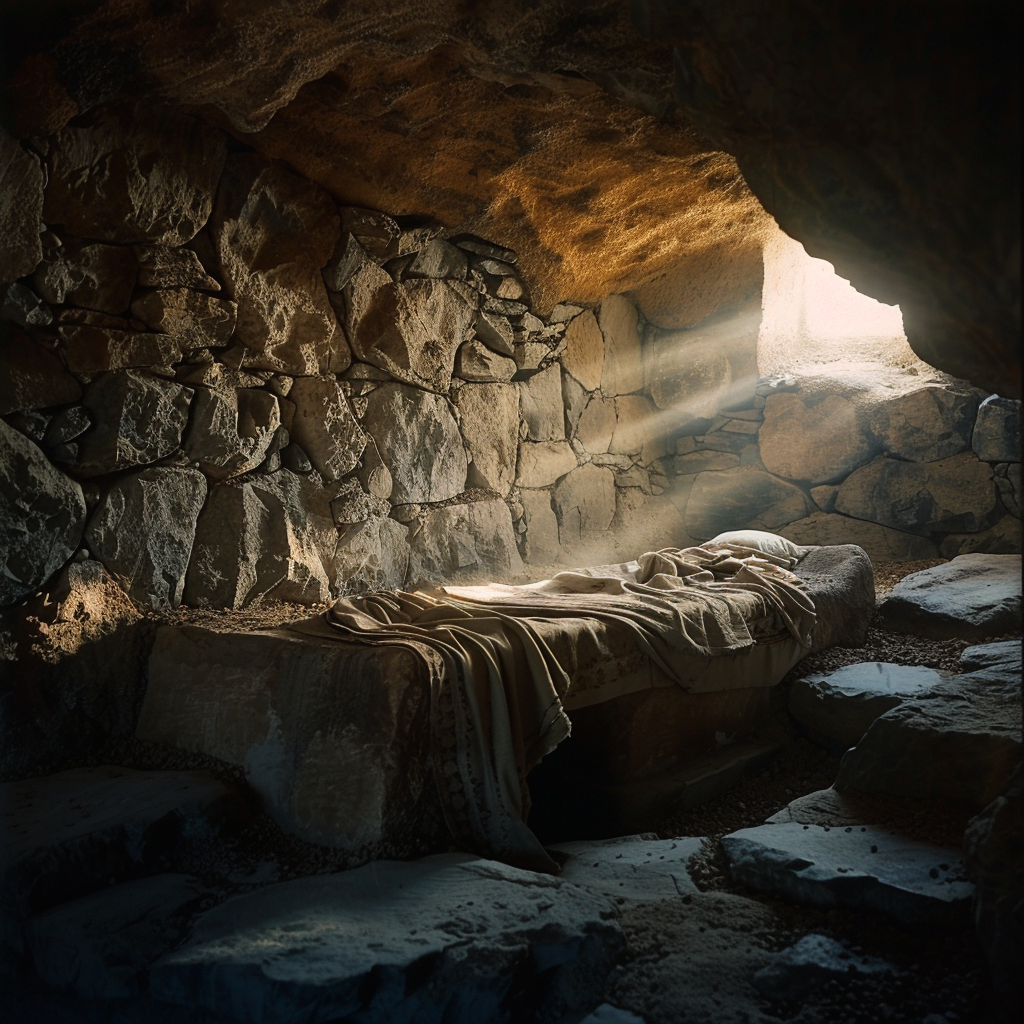Luke
LUKE
If I were to ask you, who wrote more of the New Testament than anyone else, the Apostle Paul’s name might come to mind. But it was the physician Luke who was inspired to write two books of the New Testament (Luke and Acts) which comprises more pages of the New Testament than any other author. Both of these books were addressed to Theophilus. Who is this Theophilus? Well, the name means “lover of God.” “Theo” means god and “philus” means lover. No one knows for sure who he was. Some say that he may have been Paul’s attorney in Rome. Others say that he was a benefactor who paid for Luke’s medical degree (lucky guy). Perhaps the name was a pseudonym to protect him from Roman persecution. Luke was a frequent traveling companion to the Apostle Paul who may have written this letter from Rome. One reason for this idea is that he gives detailed designations of places in the Holy Land which indicates he wrote it to people unfamiliar with the territory.
Luke 1:3 “Therefore, since I myself have carefully investigated everything from the beginning, it seemed good also to me to write an orderly account for you, most excellent Theophilus, so that you may know the certainty of the things you have been taught.” Doesn’t this sound like a person with a scientific background? He investigated carefully what he had heard about Jesus, gave an orderly account to Theophilus so that he would know exactly what happened.
Luke 1:31 "You will be with child and give birth to a son, and you are to give him the name Jesus. He will be great and will be called the Son of the Most High. The Lord God will give him the throne of his fatherDavid, and he will reign over the house of Jacob forever; his kingdom will never end."
Now, count the number of prophecies in this passage. I counted seven. 1. Be with child. 2. give birth to a son. 3. Be named Jesus. 4. Called the Son of the Most High. 5. Will be given the throne of David. 6. Will reign over the house of Jacob. 7. Kingdom will never end.
Now, how many of these prophecies have been fulfilled already? Four were fulfilled at his first coming, the remaing three will be fulfilled at his second coming.
Luke 2:47 Here we find Jesus in the Temple discussing theology with the learned adults. Verse 47 “Everyone who heard him was amazed at his understanding and his answers.” So what kind of education did Jesus have while growing up? A typical boy in would receive the following education:
At age five he would study the Torah (first five books of scripture)
At age ten, the study of the Mishnah, (the oral torah, which was the rabbinic commentary on the Written Torah.
At age thirteen, they would have their Bar Mitzvah, the ceremony where the young men become responsible for keeping the commandments. This is a “coming of age” ceremony. For most students, this was the end of their formal education and they went to work.
At age fifteen, the more gifted students who so desired would continue their studies with the study the rabbinic legal decisions, the bet midrash. Here he would study with adults.
A few of the most outstanding bet midrash students would leave home and study with a famous rabbi. If you recall, the scholar Paul was taught by the famous rabbi Gamaliel.
Now, back then, they didn’t have books, let alone computers. Much of their work was learned by memorization. How well would you have done in school in this setting? How diligent are we in passing onto our children our beliefs?
Luke 3:14 “Then some soldiers asked him, ‘and what should we do?’” He replied, “Don’t extort money and don’t accuse people falsely-be content with your pay.” This is an interesting verse. The soldiers were not told, “You should be a pacifist, get out of the army.” Herbert Armstrong, among others, used to teach that Christians shouldn’t serve in the military. Of course, this is just one of many incorrect teachings of Herbert Armstrong.
Luke 3:21 “Now Jesus himself was about thirty years old when he began his ministry.” Why thirty? This was the age that the Levites would undertake their temple service (Num 4:47).
Luke 3:23-37 This is the genealogy of Jesus. You will notice that it is different than the one given in Matt 1. Both trace their family lineage back to David, but through different lines. Matthew traces Mary’s line back to Nathan, one son of David; while Luke traces Joseph’s line back to Solomon, the oldest son of David. Since Matthew was written to the Jews, his list goes back all the way to Abraham to prove that the birth of Jesus fulfilled prophecies given to Abraham in Gen 12. Now, to make this a bit more complicated, one of Joseph’s ancestors was a man named Jeconiah. Have you ever heard of him? Perhaps not, because in the Old Testament he goes by another name, Jehoiachin, King of Judah. So Joseph was a descendant of David by way of Solomon and later Jehoiachin. Jehoiachin was the one who was taken into captivity to Babylon. Now if he was king of Judah, and Joseph was the legal descendant of him, if the Romans were not in control of the area, would Joseph be the king of Judah rather than a carpenter? No. Now you probably think I’m messing with your mind. The reason that Joseph could never have been king is because in Jer 22:30 God says that no descendant of Jehoiachin would ever sit on the throne of David. Jehoiachin was the last King of Judah. So if Jesus was the biological son of Joseph, he could not claim to be the King of the Jews.
Now that we are totally confused, let me just summarize that there are two genealogies which some critics of the Bible claim to be contradictory, hence proving that the Bible is not inspired by God. The early church understood this and had no problem with it. It is only the critics of who try to make an issue out of this. If you have difficulty sleeping at night, I would prescribe the reading of these two genealogies, along with the Book of Numbers.
Luke 4:18 Jesus stands up in the synagogue and read from Isa 61:1-2 where he says that the Spirit of the Lord was on him to preach good news to the poor, to proclaim freedom for the prisoners and recovery of sight, to release the oppressed and to proclaim the year of the Lord’s favor.” If you go back to Isa you will notice that he stopped in mid-verse. If He were to read the rest of it, he would add, the day of vengeance of our God, to comfort all who mourn, provide for those who grieve in Zion and goes on to describe what He will do during his second coming. Also notice, he stood up to read scripture, which is seen in Neh 8:5 where the people stood up when the word was read. In verse 20 we see that Jesus then sat down. It was customary to stand while reading scripture and to sit when teaching (Matt 5:1; Luke 5:3).
Luke 4:23-30 “Physician, heal yourself! Do here in your hometown what we have heard that you did in Capernaum.” This expression is a figure of speech used by the Jews which meant, “prove yourself.” Jesus claimed to be the Messiah and they had heard of his miracles done elsewhere and they wanted him to prove himself to them. Jesus then reminded them that Elijah and Elisha had to minister outside of Israel because the Israelites had fallen into idolatry. Jesus was comparing these people with the unbelieving Israelites of the past. The people in the synagogue were furious when they heard this and tried to kill him.
Luke 5:1.4, 5 “One day as Jesus was standing by the Lake of Gennesaret, with the people crowding around him and listening to the word of God.” Notice that Jesus took advantage of every opportunity to teach others, day or night; inside or out of doors. Too bad many churches limit teaching to Sunday morning and Wednesday night. V 4 “When he had finished speaking, he said to Simon, “Put out into deep water, and let down the nets for a catch.” Simon answered, “Master, we’ve worked hard all night and haven’t caught anything.” The fishermen usually fished at night because the fish could not see the nets in the water. They then had to dry the nets before going home to prevent them from rotting.
Luke 6:43, 45 “No good tree bears bad fruit, nor does a bad tree bear good fruit . . . . The good man brings good things out of the good stored up in his heart, and the evil man brings evil things out of the evil stored up in his heart.” I recommend that you go to the Frequently Asked Question section and read article entitled Was He/She saved? If you go to Gal 5:22 you will see a list of the fruit of the Spirit of God that Christians should be exhibiting in their lives.
Luke 7:11-15 Jesus goes to the city of Nain and sees a funeral procession taking the son of a widow to the cemetery. Jesus raises him from the dead and gives him back to his mother. This village is the ancient village of Shunem, where Elisha the prophet lodged in the Shunamite’s house (2 Kings 4). According to local customs, if you come across a funeral procession, you were to yield the right of way and follow behind it to the cemetery. The only exceptions to yielding would be if you were a bridal procession on her wedding day or the king of Israel. Jesus did not yield to the funeral procession, since he was a king. Jesus raised the boy from the dead. What Jesus did was he reenacted the story of Elisha right before their eyes. They people knew the parallels with Elisha and said, “A great prophet has appeared among us.”
Luke 10:4 “Do not take a purse or bag or sandals; and do not greet anyone on the road.” This sounds rude; can’t we greet people as we pass them by? Here he is saying that we shouldn’t waste time in small talk or gossip, because the mission is too important.
Luke 10:41 “Martha, Martha,” the Lord answered, “you are worried and upset about many things (getting dinner ready), but only one thing is needed. Mary has chosen what is better, (learning from Jesus) and it will not be taken away from her.” This passage reminds me of what Jesus said about our values in Matt 6:21 where he said, “Where your treasure is, there your heart will be also.” Just as we can tell what is really important to someone by how they spend their resources (time and money); so we can tell much about someone by what they worry about.
Luke 12:13-14 “Someone in the crowd said to him, “Teacher, tell my brother to divide the inheritance with me.” The title “rabbi” meant “teacher” rather than a clergyman. Rabbis taught Jewish values, and customs, and were arbitrators who decided points of law and ethics. Here the person wanted Jesus to acts like a civil judge, deciding an issue of inheritance. It has only been since the 18th century that rabbis in the West have been viewed alongside Catholic priests and Protestant ministers.
Luke 13:23-24 “Lord, are only a few people going to be saved?” He said to them, “Make every effort to enter through the narrow door, because many, I tell you, will try to enter and will not be able to.” Once the owner of the house gets up and closes the door, you will stand outside knocking and pleading, ‘Sir, open the door for us.’’ The narrow gate appears to be the narrow time frame. Your time of opportunity to be saved is now; don’t try to get saved when it is too late as was seen in Matt 7:23 where Jesus said, “Depart from me, I never knew you.”
Luke 16:13 “No servant can serve two masters. Either he will hate the one and love the other, or he will be devoted to the one and despise the other. You cannot serve both God and money.”
Sometimes, as in Mal. 1:2-3, God says “I have loved Jacob, but Esau I have hated.” This is a figure of speech that simply means that God preferred Jacob over Esau or “put Jacob first.”
Luke 16:18 “Anyone who divorces his wife and marries another woman commits adultery, and the man who marries a divorced woman commits adultery.” This passage is filled with Jewish terms, which if read in Hebrew, makes a bit more sense. The term “and” can be translated “in order to.” This is seen in Ex 7:16 where Moses, Let my people go, and [i.e., so that] they may worship me in the wilderness. What Jesus is saying is, “divorcing one’s wife in order to marry another is adultery.” Not all marriage and divorce is adultery considered adultery. Jesus is probably saying that having terminated a marriage with a legally binding bill of divorce, you were permitted to remarry.
Luke 22:36, 50 “But now if you have a purse, take it, and also a bag; and if you don’t have a sword, sell your cloak and buy one . . . And one of them struck the servant of the high priest, cutting off his right ear. But Jesus answered, ‘No more of this!’ and he touched the man’s ear and healed him.” Why would Jesus tell them to buy a sword and then chastise someone for using it to cut off a servant’s ear? Well, the weapon that Jesus told them to buy was not a sword, but a dagger, a defensive weapon, not an offensive one. The reason he chastised him was because Jesus did not want anyone to prevent his arrest and crucifixion. It was for this reason, dying for the sins of man, that he came into this world.
Luke 24:50-51 “When he had led them out to the vicinity of Bethany, he lifted up his hands and blessed them. While he was blessing them, he left them and was taken up into heaven.”
The blessing was: “The Lord bless you, and keep you; The Lord make His face shine on you, and be gracious to you; the Lord lift up His countenance on you, and give you peace” (Num 6:22-27). Another ancient name for the blessing is the “Lifting of the Hands.” In Temple times, the priests lifted their hands over the people while pronouncing the blessing (Lev 9:22). When they lifted their hands over the people, the priests made the sign of the priesthood. They spread the thumb and index finger of each of his hands. Turning his palms outward, he brings the thumb and index finger to touch the thumb and index finger of the opposite hand. The third and fourth fingers of his hands are also spread apart. This creates a “W” shape with the fingers. Star Trek fans are familiar with Mr. Spock’s Vulcan sign of peace-a hand sign Leonard Nimoy borrowed from his own synagogue upbringing. The Vulcan hand sign is one half of the sign of the priesthood. “Live long and prosper” is apparently the Vulcan equivalent of the priestly blessing which Jesus gave them.
Since Jesus was not a descendent of Aaron, he was legally incapable of serving as a priest and offering this blessing. But if He was not a priest, why did he bless his disciples with the ancient sign of the priesthood? It is because Jesus had entered into another type of priesthood, the priesthood of Melchizedek. “He has become a priest not on the basis of a law of physical requirement (descendant of Aaron), but according to the power of an indestructible life. For it is witnessed to Him, “You are a priest forever according to the order of Melchizedek” (Heb 7:16-17).
Recent Articles

Share this:
Start Here...
Why Study the Bible?
Don’t many consider the Bible to be just a book of myths? Why do we read the Bible rather than the sacred literature of other religions?
How do we know that it is from God? How do we know that what we have today is an accurate translation from the original? Is the Bible complete or have there been some books that have been lost?
We should be able to answer these questions, and there are answers! So start here!
Answers to Common Bible Questions



Questions?
Send us your questions or comments. We respond to every message.
About us
Encouraging Everyone to Study the Word of God and do the Work of God.
Useful Links
Contact info
Join our family
Contact Us
We will get back to you as soon as possible
Please try again later
The Berean Bible Ministry
This web site is dedicated to the study of the Bible, with no advertising and no popups. It is supported by our Bible study group.




